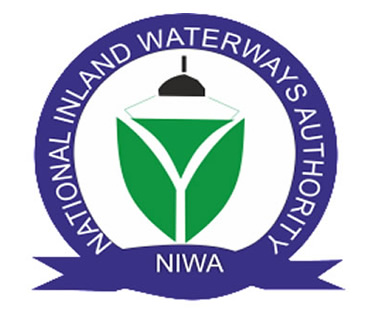The National Inland Waterways Authority (NIWA) has announced a strategic initiative to engage private firms in a concerted effort to tackle the growing menace of water hyacinth in Nigeria’s inland waterways. This invasive aquatic plant has become a significant challenge, affecting navigation, fishing, and overall water quality in many water bodies across the country. By collaborating with experienced firms, NIWA aims to implement effective and sustainable solutions to clear these water bodies and restore their ecological balance.
The Impact of Water Hyacinth
Water hyacinth, known for its rapid growth and proliferation, poses serious threats to aquatic ecosystems. It can cover water surfaces, blocking sunlight and disrupting the natural habitat for fish and other aquatic organisms. Furthermore, its dense mats can hinder boat movement, impacting commercial and recreational activities on rivers and lakes. The economic implications are significant, particularly for communities reliant on fishing and transportation via these waterways.
As the invasive species continues to spread, NIWA recognizes the urgent need for a comprehensive strategy to manage and mitigate its effects. The decision to engage private firms is aimed at leveraging their expertise, technology, and resources to develop effective hyacinth management solutions.

Engagement with Private Firms
NIWA is actively seeking partnerships with firms specializing in environmental management and aquatic weed control. This collaboration will involve the deployment of advanced techniques for the identification, management, and removal of water hyacinth from affected waterways. The authority aims to create a framework for continuous monitoring and assessment of the waterways to prevent future infestations.
In a recent statement, NIWA emphasized that the engagement of these firms will not only facilitate the clearing of water hyacinth but will also contribute to capacity building within local communities. By involving local stakeholders in the clearing process, NIWA intends to empower them with knowledge and skills to manage aquatic weeds sustainably in the long term.
**Sustainable Management Practices**
The partnership with private firms will focus on implementing sustainable management practices that balance environmental health and economic interests. This includes exploring biological control methods, such as the introduction of natural predators to water hyacinth, as well as mechanical and manual removal techniques. NIWA is committed to ensuring that all methods employed are environmentally friendly and do not disrupt local ecosystems.
Additionally, NIWA will work with these firms to develop public awareness campaigns aimed at educating communities about the importance of protecting waterways and managing aquatic weeds. By fostering a culture of environmental stewardship, NIWA hopes to mobilize community support for ongoing efforts to maintain clean and navigable waterways.
**Monitoring and Evaluation**
To ensure the effectiveness of the clearing efforts, NIWA will establish a robust monitoring and evaluation framework. This framework will assess the impact of the interventions on water quality, biodiversity, and the overall health of the aquatic ecosystem. Regular assessments will also help identify any potential resurgence of water hyacinth and facilitate timely responses.
The authority is committed to transparency and accountability in its engagements with private firms. Regular updates will be provided to stakeholders, ensuring that the communities affected by water hyacinth are informed about the progress and outcomes of the clearing initiatives.
**Collaboration with Local Governments**
In addition to engaging private firms, NIWA is working closely with local governments to create a unified approach to water hyacinth management. Local governments play a crucial role in the enforcement of regulations and the mobilization of community resources. By fostering collaboration at all levels, NIWA aims to create a comprehensive strategy that addresses the root causes of water hyacinth proliferation.
Through joint efforts, NIWA and local governments will implement policies that promote sustainable practices in water management, agricultural practices, and waste disposal, which are key factors contributing to the spread of water hyacinth. This multi-faceted approach is expected to yield long-term benefits for both the environment and the local economy.
**Conclusion**
NIWA’s initiative to engage private firms for water hyacinth clearing represents a proactive and collaborative approach to addressing a pressing environmental challenge. By leveraging the expertise of specialized firms, NIWA aims to restore the health of Nigeria’s inland waterways, ensuring they remain vital resources for navigation, fishing, and community livelihoods.
The focus on sustainable management practices, community engagement, and collaboration with local governments underscores NIWA’s commitment to environmental stewardship and the well-being of local communities. As the clearing efforts progress, NIWA will continue to monitor the situation and adapt its strategies to ensure the long-term health and sustainability of Nigeria’s waterways.
This initiative not only highlights the importance of addressing invasive species but also serves as a model for future environmental management efforts across the country. Through collective action and innovative solutions, NIWA is poised to make significant strides in combating water hyacinth and promoting the health of Nigeria’s aquatic ecosystems.
Support InfoStride News' Credible Journalism: Only credible journalism can guarantee a fair, accountable and transparent society, including democracy and government. It involves a lot of efforts and money. We need your support. Click here to Donate
